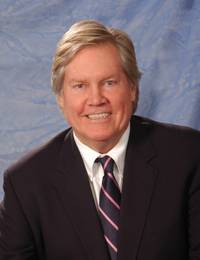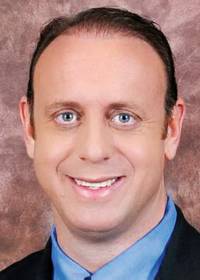VEGAS INC coverage
To drum up business, Nevada has a long history of welcoming what other states scoff at: prostitutes, gamblers, shotgun weddings and shell companies.
The Silver State also opens its arms to a more obscure area of commerce: helping the wealthy shield money from legal opponents and ex-spouses.
Nevada is one of 15 states that lets people form “asset protection trusts” to guard stocks, bonds, real estate and other assets from creditors. Businesspeople who frequently get sued, including doctors and contractors, often use them to safeguard their wealth.
In 1999, Nevada became one of the first states in the country to allow the trusts. The state has some of the most industry-friendly laws on the books, lawyers say.
Assets are off limits to creditors just two years after getting stashed away, a shorter time frame than in other states. Nevada also is one of only two states, with Utah, that makes the trusts virtually bulletproof to all debts.
Almost every other state that allows the trusts includes exemptions for alimony and child support. Last year, a bill in the Nevada Legislature that would have ushered in similar exceptions faced strong opposition from the local trust industry and died.
Critics of the existing policy say trusts let people hide money from those with legal rights to collect it and that the creators, many who live out of state, act recklessly because of the protections they are offered.
“This is not the kind of business I want to attract to Nevada,” said Sen. Richard “Tick” Segerblom, who pushed for changes to the law last year.
The trusts are designed to shield people from possible future creditors. No state, including Nevada, allows owners to fraudulently sock away assets if they are on the hook for a court-ordered judgment or expect to be, although people still try to do exactly that.
Rather, the system lets professionals who regularly get hit with lawsuits park their assets in a safe place. It also generates revenue for attorneys, trust companies and bankers who structure and administer the accounts.
Trusts aren’t unique to Nevada. People nationwide create trust funds for their children or favorite charities.
But only a handful of states let people create safeguarded trusts for themselves, “and Nevada is the best of the bunch,” said David Thorson, a vice president of Nevada Trust Co.
•••
In the 1980s, rapid growth in medical malpractice lawsuits and personal injury litigation prompted doctors and other professionals to start thinking about how to protect their bank accounts.
Their options were limited. The law allowed them to put assets in a trust for a spouse, but if they divorced, they risked losing everything. They could set up a trust fund for their children but would lose access to their assets. Or they could set up a “revocable living trust,” but their assets still would be vulnerable to creditors.
States didn’t allow people to form protected trusts for themselves, so many looked offshore to places that did, such as the Cook Islands, Bahamas and Isle of Man, said New York lawyer Gideon Rothschild, an asset protection specialist at Moses & Singer.
To keep the growing business in America, state lawmakers gave in. In 1997, Alaska became the first state in modern times to allow protected trusts, followed by Delaware, Rhode Island and Nevada. Colorado has a policy that dates back to the Civil War era, but it offers little protection. Since then, several other states have joined, including Hawaii and Virginia. Ohio is the most recent entry to the field.
When its law took effect last year, Rep. Christina Hagan, a co-sponsor, said the measure was designed to help residents better protect their assets and let Ohio compete in the lucrative trust industry.
Still, most states have refrained from allowing the trusts, worried that people will hide behind them.
“There are two sides to this equation,” said attorney Al Marquis, a partner at Marquis Aurbach Coffing.
•••
Local attorneys promote the trusts as a tool for fending off creditors and forcing cents-on-the-dollar legal settlements.
Assets aren’t in an owner’s name, so they typically can’t be touched if, say, he or she is sued or owes someone money.
“Fewer assets are in your name so creditors are more likely to move on and not waste their time on you,” Las Vegas lawyer Gary Fales wrote on his website.
It’s unclear how popular protected trusts are in Nevada. They are private documents and do not have to be publicly disclosed, making it almost impossible to track their creation.
And even though Nevada’s asset protection rules have been around for almost 15 years, lawyers say there are almost no court rulings that refine the policy’s scope or strength, creating a legal gray area.
Nevertheless, Nevada often is cited as one of the best places to form trusts, largely because of the state’s no-exemption and 2-year window rules.
In 2010, Forbes magazine gave Nevada an A-plus for its protections, saying the state is the most debtor-friendly in America.
“Unlike other states, Nevada protects your assets from ... a divorcing spouse, alimony and even child support obligations,” Forbes wrote.
•••
Last year’s Assembly Bill 378 would have changed the law, but the bill failed.
“I was the leader of the charge to quash it,” local attorney Steve Oshins said.
Oshins has clients nationally and markets his practice in part by publishing an annual ranking of states’ asset protection laws. Nevada tops the list.
If AB378 had become law, Nevada would have lost its edge, slipping to No. 2 behind South Dakota, Oshins said. People outside the state would have thought Nevada was weakening its safeguards, he said.
“It would have caused Nevada to look bad for no reason,” he said.
According to Segerblom, though, the trusts merely benefit rich out-of-towners who use them to hide assets from spouses and children.
“People can’t go after it,” Segerblom said. “It’s just crazy.”


